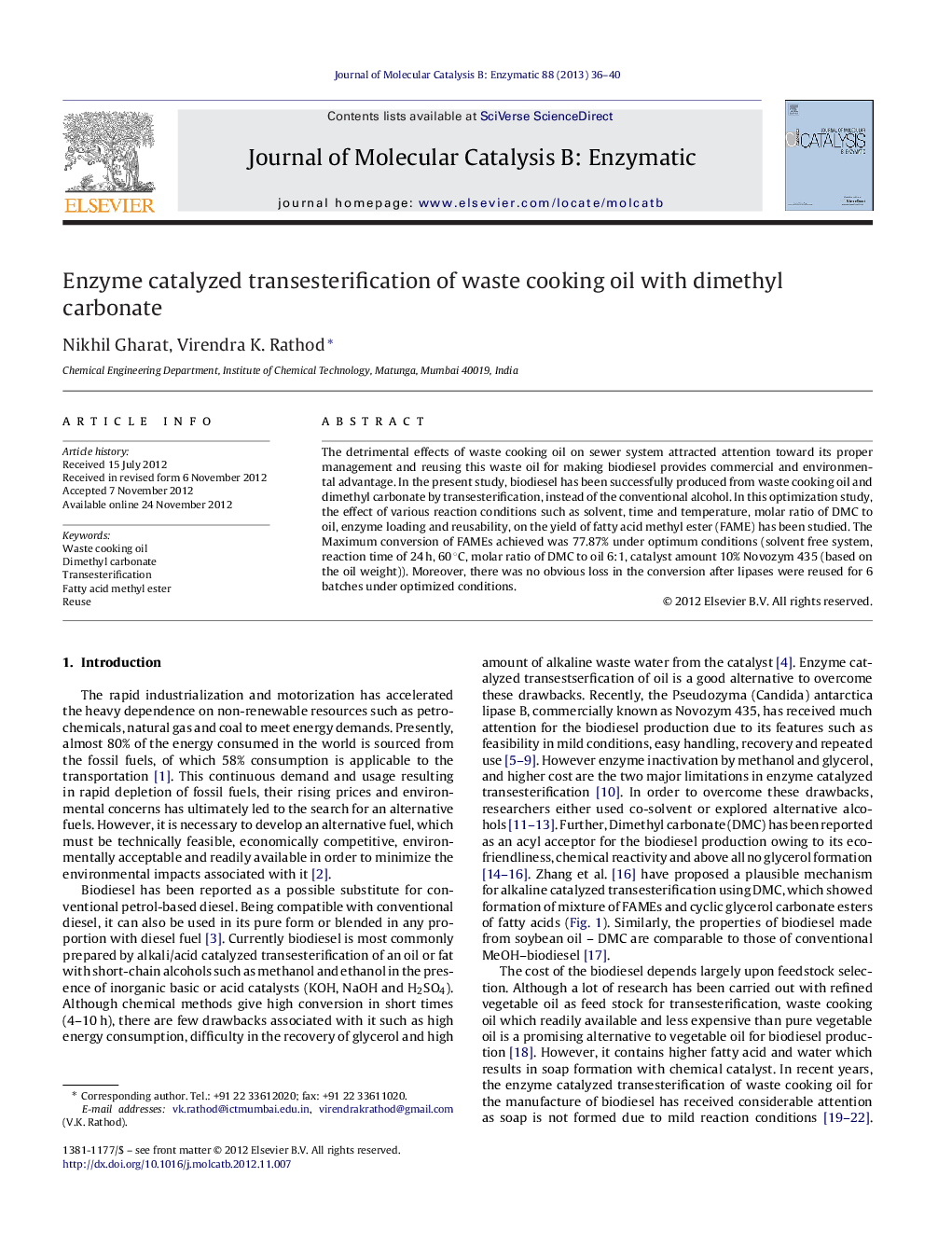| Article ID | Journal | Published Year | Pages | File Type |
|---|---|---|---|---|
| 70098 | Journal of Molecular Catalysis B: Enzymatic | 2013 | 5 Pages |
The detrimental effects of waste cooking oil on sewer system attracted attention toward its proper management and reusing this waste oil for making biodiesel provides commercial and environmental advantage. In the present study, biodiesel has been successfully produced from waste cooking oil and dimethyl carbonate by transesterification, instead of the conventional alcohol. In this optimization study, the effect of various reaction conditions such as solvent, time and temperature, molar ratio of DMC to oil, enzyme loading and reusability, on the yield of fatty acid methyl ester (FAME) has been studied. The Maximum conversion of FAMEs achieved was 77.87% under optimum conditions (solvent free system, reaction time of 24 h, 60 °C, molar ratio of DMC to oil 6:1, catalyst amount 10% Novozym 435 (based on the oil weight)). Moreover, there was no obvious loss in the conversion after lipases were reused for 6 batches under optimized conditions.
Graphical abstractFigure optionsDownload full-size imageDownload as PowerPoint slideHighlights► Enzyme catalyzed transesterification of waste oil and dimethyl carbonate in solvent free system. ► A maximum conversion of 77.87% is achieved in 24 h. ► Dimethyl carbonate avoids inhibition of enzyme. ► Enzyme can be recycled six times without activity loss.
